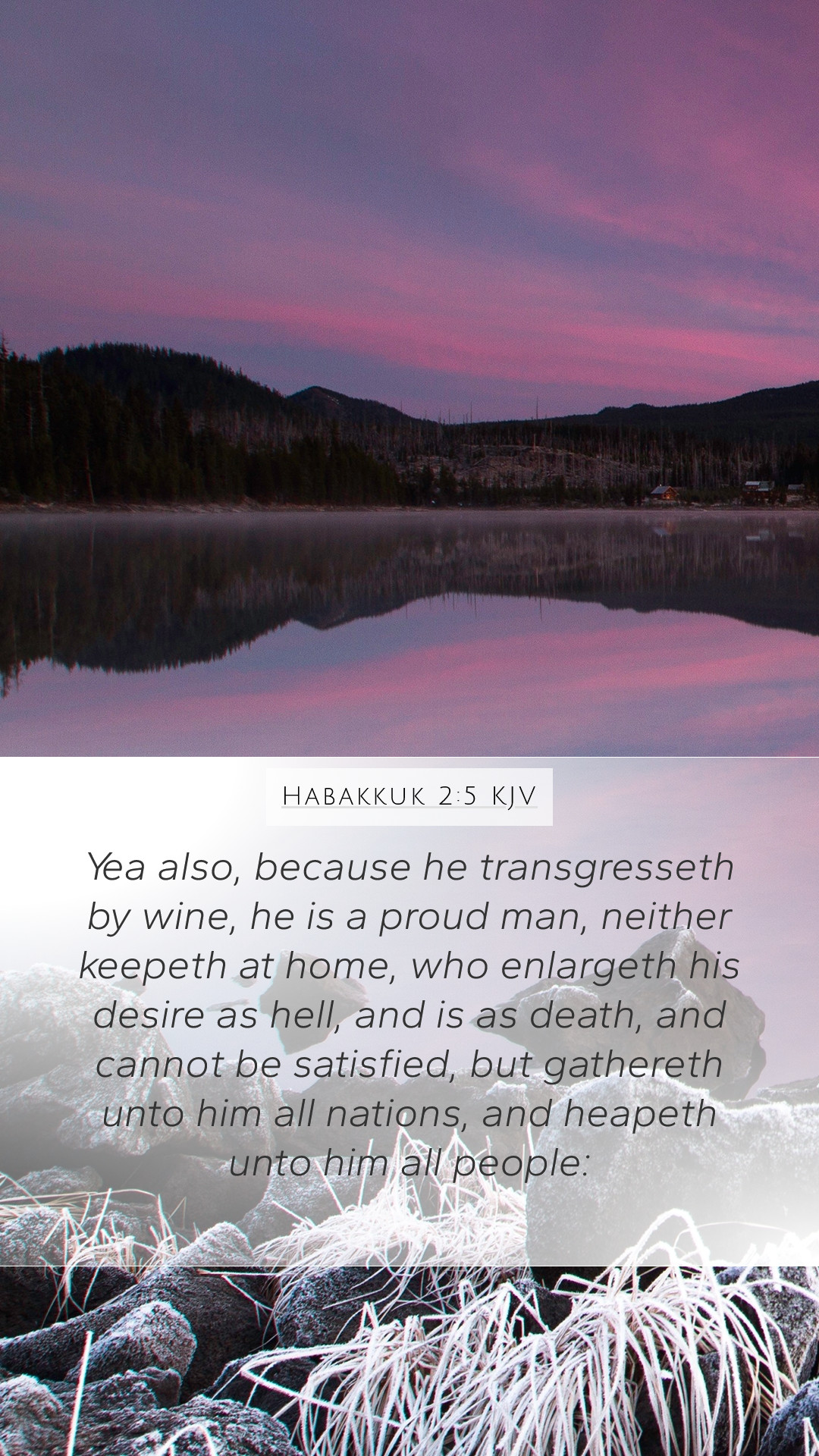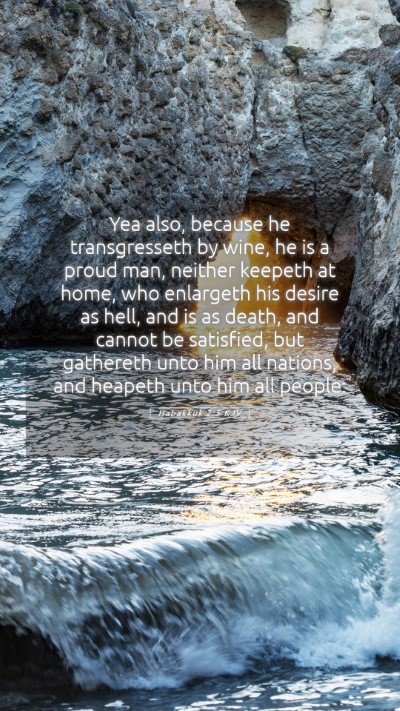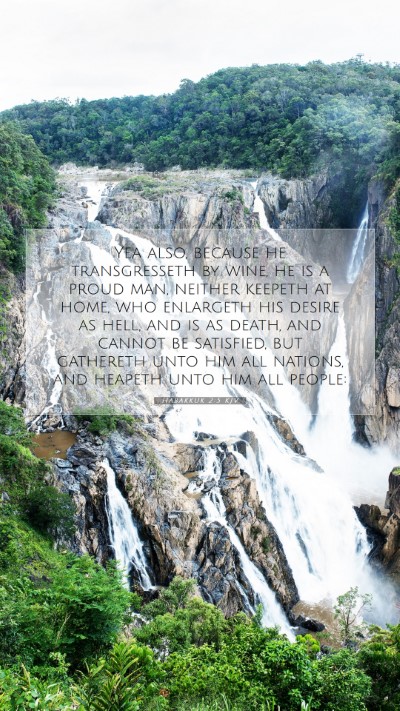Old Testament
Genesis Exodus Leviticus Numbers Deuteronomy Joshua Judges Ruth 1 Samuel 2 Samuel 1 Kings 2 Kings 1 Chronicles 2 Chronicles Ezra Nehemiah Esther Job Psalms Proverbs Ecclesiastes Song of Solomon Isaiah Jeremiah Lamentations Ezekiel Daniel Hosea Joel Amos Obadiah Jonah Micah Nahum Habakkuk Zephaniah Haggai Zechariah MalachiHabakkuk 2:5 Meaning
What is the meaning of Habakkuk 2:5?
Yea also, because he transgresseth by wine, he is a proud man, neither keepeth at home, who enlargeth his desire as hell, and is as death, and cannot be satisfied, but gathereth unto him all nations, and heapeth unto him all people:
Habakkuk 2:5 Bible Verse Meaning
Understanding Habakkuk 2:5
Habakkuk 2:5 reads: "Moreover, wine is a traitor, an arrogant man who is never at rest. His greed is as wide as Sheol; like death, he has never enough. He gathers for himself all nations and collects as his own all peoples." This verse presents a profound reflection on the nature of greed and the consequences of arrogance.
Bible Verse Meaning
This verse is part of Habakkuk's prophetic discourse, where he contrasts the arrogance of the Chaldeans with the righteousness of God. The mention of wine draws a parallel between intoxication and the deceptive characteristics of the Chaldeans, who are portrayed as insatiable and boundless in their pursuit of power.
Insights from Commentaries
- Matthew Henry: Henry emphasizes the metaphor of wine representing pride and greed in the lives of oppressive nations. He notes that wine can both uplift and lead to folly, much like the Chaldeans who, intoxicated by power, fail to see their moral decay.
- Albert Barnes: Barnes highlights the insatiable nature of greed symbolized by "Sheol", suggesting that the Chaldeans' appetite for conquest knows no bounds. Their arrogance leads to their destruction, for they are oblivious to the impending judgment of God.
- Adam Clarke: Clarke interprets the traitorous nature of wine as a picture of the Chaldeans' treachery. He posits that their accumulation of wealth and territory reflects a deeper spiritual decay, as they pursue material gain at the expense of justice and righteousness.
Scripture Analysis
The verse illustrates a critical theme in Hebrew prophecy: the tension between human arrogance and divine sovereignty. It warns against the dangers of pride, characterizing the oppressor's unending quest for domination as ultimately self-destructive.
Key Themes
- Human Arrogance: The Chaldeans epitomize hubris, believing they can act with impunity against God’s covenant people.
- Greed and Insatiability: The greed represented in this verse transcends material pursuits, suggesting a spiritual barrenness that underlies their ambitions.
- Divine Judgment: This passage foreshadows the eventual downfall of the arrogant and greedy; it acts as both a warning and a promise of justice from God.
Application to Daily Life
Individuals today can reflect on this verse by examining their own lives for signs of arrogance or greed. The call to humility and reliance on God’s provision serves as a reminder that true fulfillment cannot be found in possessions or power. Instead, it encourages believers to pursue righteousness and find contentment in faith.
Cross References
- Proverbs 16:18: "Pride goes before destruction, and a haughty spirit before a fall."
- Isaiah 5:11: "Woe to those who rise early in the morning, that they may follow intoxicating drink; who continue until night, till wine inflames them!"
- James 4:6: "But He gives more grace. Therefore He says: 'God resists the proud, but gives grace to the humble.'
Conclusion
In summary, Habakkuk 2:5 serves as a profound illustration of the consequences that follow arrogance and greed. By understanding this scripture through the insights of seasoned commentators, readers can appreciate its significance and apply its teachings to their lives.


